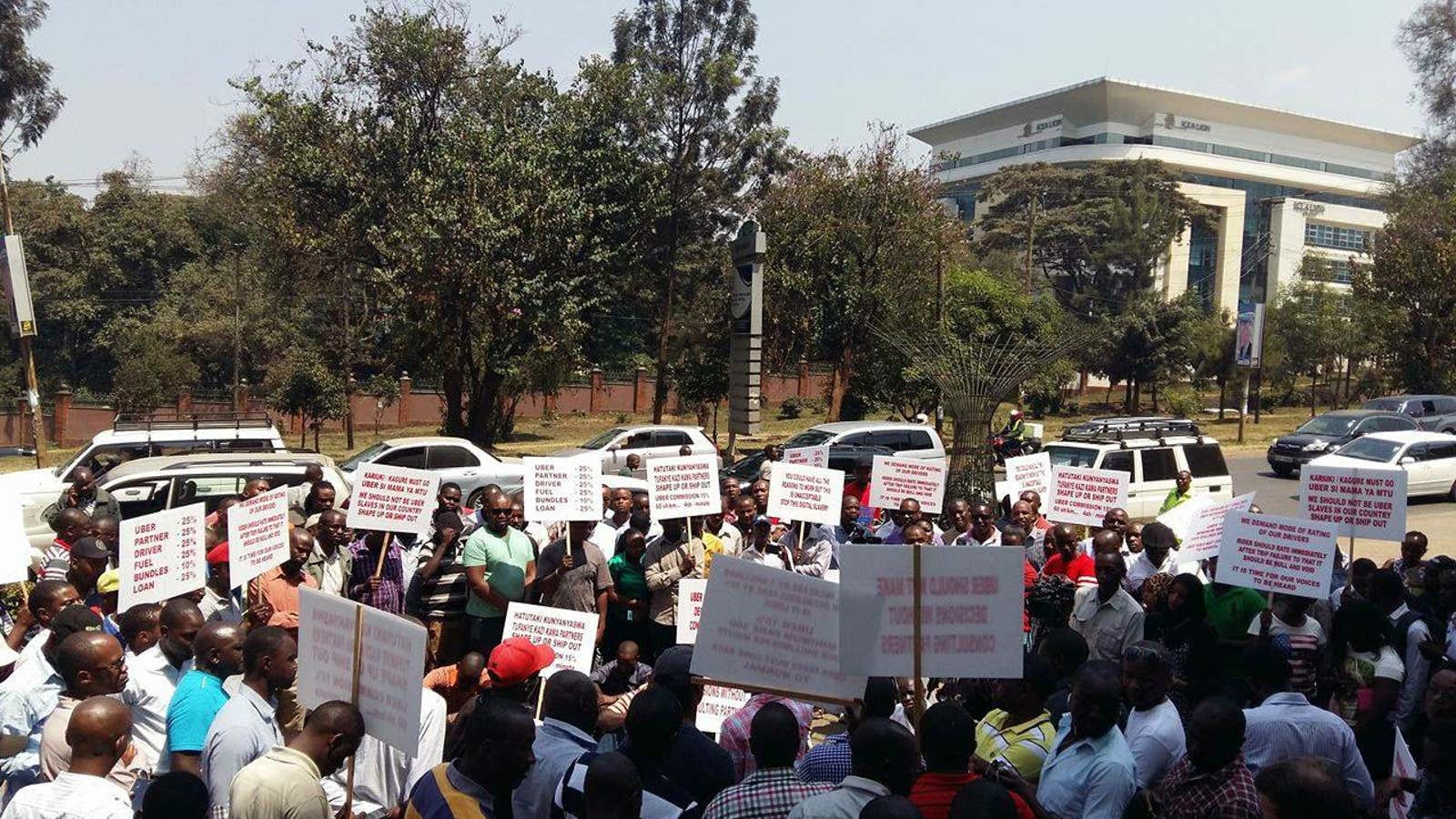Uber is encountering some bumps in Nairobi, one of its biggest markets in Africa. After months of protest and attacks by taxi drivers hoping to intimidate drivers and customers of the taxi hailing app, the company is now facing strikes from its own Uber drivers over a fare cut announced last week. Protesters in Nairobi waved picket signs with critical statements including, ”we should not be Uber slaves in our country.”
Uber announced a 35% fare reduction last week in hopes of boosting demand. Uber, which is in now in 10 sub-Saharan markets, has been facing more competition from local and outside taxi hailing apps across the continent. In Kenya, rivals have been offering cheaper rates and customized services like boda boda, or motorbike, rides. Safaricom, the dominant telecom in the country, has also launched its own taxi hailing app, Little Cabs.
In response to the rate cut, a group of Uber and Little Cab drivers have organized their own union, the Kenya Digital Taxi Association. About a hundred protesters blocked traffic along a main Nairobi highway. Drivers refused to accept ride requests most of the day and waited outside Uber’s office in Nairobi.
No one came out to speak with them according to the group’s social media coordinator, an Uber driver who asked not to be named for fear of being penalized by the company. The group is asking that Uber also lower the cut that it takes from the drivers’ earnings, from the current 25% to 15%.
“They don’t want to deal with a group. They want to deal with drivers and partners individually so that they can easily oppress us,” he said. ”Say no to neocolonialism,” the group said on its Facebook page, calling on other drivers to join. Others held signs that said, “We should not be Uber slaves in our own country. Shape up or ship out.”
Since Uber launched in Kenya last year, drivers have signed up en masse. Believing business would remain good, many have taken out loans to buy cars. Now, Uber has halted new driver applications and the number of drivers on the platform— more than 1,000—has translated into fewer ride requests per driver.
Uber said the protests today don’t represent the views of thousands of operators on the platform, and that ”multiple focus groups” and “one-on-one feedback sessions” were held over six weeks leading up to the price cut. Drivers are also to get compensation for hours that they don’t get requests.
“Uber has improved the driver experience with flexibility, increased economic opportunity and established communication channels,” an Uber spokesperson said in an emailed statement. “Anyone can speak to us at any time. There are many ways driver-partners can let us know if they have any individual concerns.”
